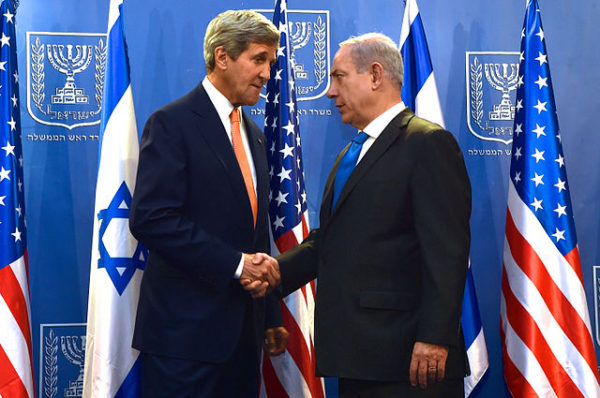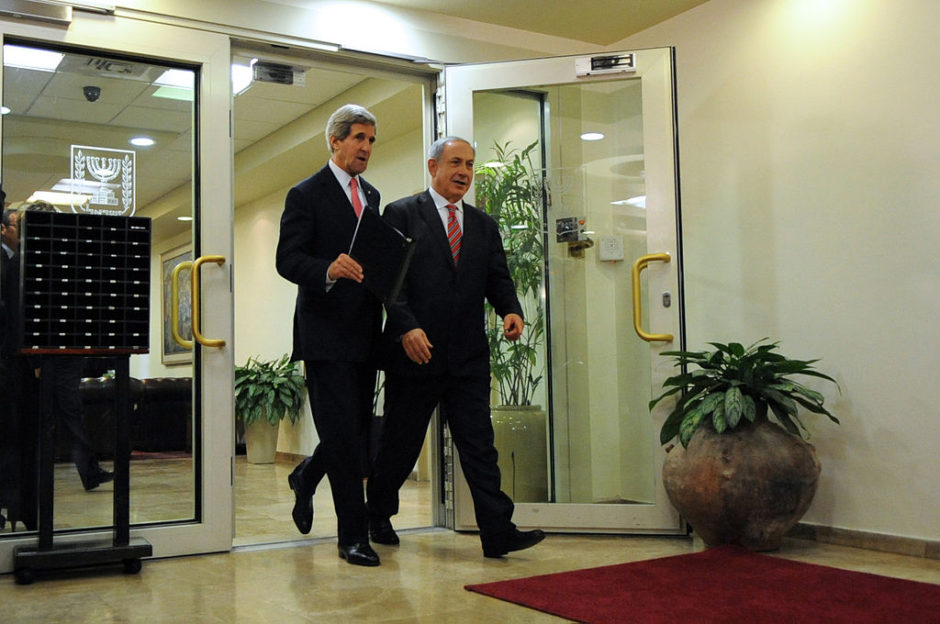As he ends his tenure as U.S secretary of state, John Kerry has fired parting shots at Israel. At a forum in Washington, D.C. on December 4, he made two important points that Israel’s short-sighted leadership would be well advised to heed.
He reiterated Washington’s long-held view that Jewish settlements in the West Bank are an obstacle to a two-state solution. And he warned Israel that it will not succeed in forging a rapprochement with Arab states unless the Palestinian problem is finally resolved.
These comments may sound like no-brainers to someone even remotely familiar with the politics of the Middle East. But to the current Israeli coalition government, led by Prime Minister Benjamin Netanyahu, they are nothing short of heretical.
Kerry has a legitimate stake in the issue.

For more than a year, starting in 2013, he invested an enormous amount of time and energy in a tireless diplomatic campaign to broker a peace agreement between Israel and the Palestinian Authority, led by President Mahmoud Abbas. Shuttling back and forth between Washington and Jerusalem, he used all his persuasive powers to try to achieve a breakthrough.
Alas, he failed. But to his credit, he has not given up on the idea. At the Brooking Institute’s Saban Forum this past Sunday, Kerry spelled out his views yet again, focusing on two particular issues.
Kerry, yet again, argued that Israel’s network of settlements in the West Bank block the formation of a contiguous Palestinian state. He rightfully acknowledged that settlements per se are not the cause of the Arab-Israeli dispute, but correctly pointed out that they “narrow the capacity for peace.”
Since the Six Day War, Israel has been building settlements in the West Bank, knowing full well they would have a chilling effect on the prospects for peace. In pushing ahead with the construction and expansion of settlements, Israel has defied a chorus of international criticism, as Netanyahu admitted the other day. “Well, I think we have been doing what we want,” he said.

Netanyahu realizes that, in the absence of a two-state solution, Israel will inevitably morph into a binational state, a scenario which Kerry alluded to in his most recent remarks. Israel, he noted pointedly, is “moving in the wrong direction.”
Despite his recognition that Israel requires peace to thrive as a democratic Jewish state, Netanyahu is content with the status quo, which deepens the Arab-Israeli imbroglio, places Israel and the Palestinians on a collision course and produces constant conflict.
Like his myopic ministers, he believes he can blithely ignore and bypass the Palestinians by reaching out to conservative Sunni Arab states such as Saudi Arabia and Qatar, which, like Israel, oppose Iran’s nuclear ambitions and fear its hegemonic designs in the region.
The leaders of these Arab countries already have informed Netanyahu that his scheme to short-change the Palestinians will not work. In his remarks a few days ago, Kerry referred to Netanyahu’s proposal: “There will be no separate peace between Israel and the Arab world. Let me make that clear to you. There will be no advance or separate peace … without advancing the Palestinian issue. Everybody need to understand that. This is hard reality.”
Kerry is right. He’s a realist, not a fantasist like Netanyahu.
